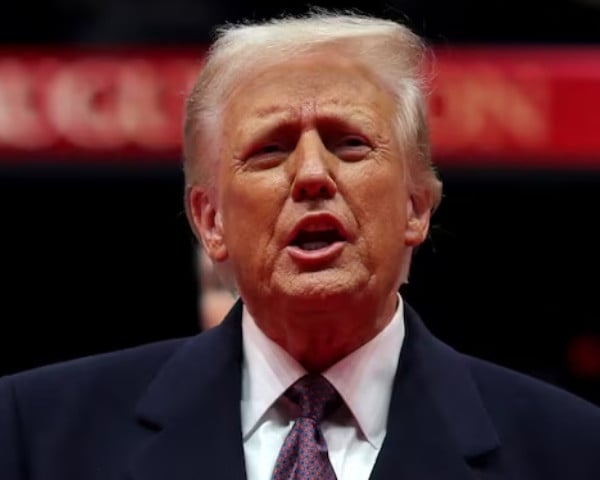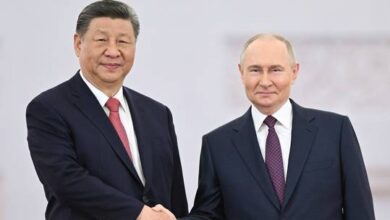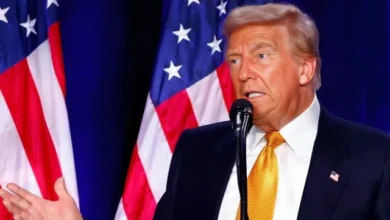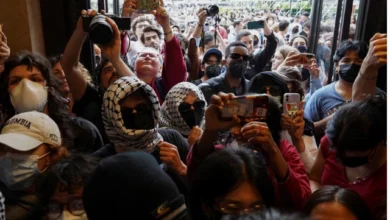US President Donald Trump stirred controversy after revealing that he had asked the King of Jordan to accept more Palestinians, suggesting that Palestinians should leave the Gaza Strip to “clean out” the enclave.
Trump made the comments while aboard Air Force One on Saturday, stating that he would rather work with Arab nations to build housing for Palestinians in new locations where they could “maybe live in peace for a change.”
Trump specifically mentioned Egypt and Jordan as potential countries to take in more refugees and said he had raised the issue with Jordan’s King Abdullah, adding that he would discuss it with Egyptian President Abdel Fattah el-Sissi the following day.
The proposal was praised by Israel’s far-right politicians, including Finance Minister Bezalel Smotrich and former National Security Minister Itamar Ben-Gvir, who called it “out-of-the-box thinking” that could bring peace and security.
However, the idea was quickly rejected by Palestinians and critics. Senior Hamas spokesperson Sami Abu Zuhri said Palestinians would never leave their homeland, no matter the circumstances.
UN Special Rapporteur Francesca Albanese condemned Trump’s comments, labeling them as “ethnic cleansing,” no matter how they were presented.
Meanwhile, Trump also confirmed that he had instructed the US military to resume shipments of 2,000-pound bombs to Israel, a move that had been paused under the Biden administration over concerns about civilian casualties. When asked why he authorized the release, Trump stated, “because they bought them.”
Despite this, a fragile ceasefire between Israel and Hamas continued to hold, though both sides accused each other of breaching the terms.
While Hamas demanded the return of Palestinians to northern Gaza as part of the truce, Israel insisted that Hamas release all female civilian hostages first.
The comments come amid ongoing violence in Gaza, which began on October 7, 2023, with a deadly Hamas attack on Israel.
The conflict has led to the deaths of more than 47,000 Palestinians and 1,200 Israelis, with both sides continuing to accuse each other of violating the ceasefire agreement.







